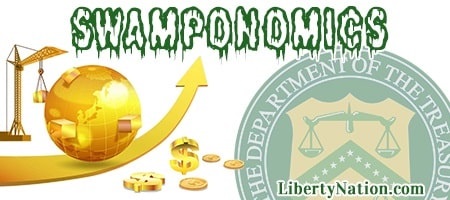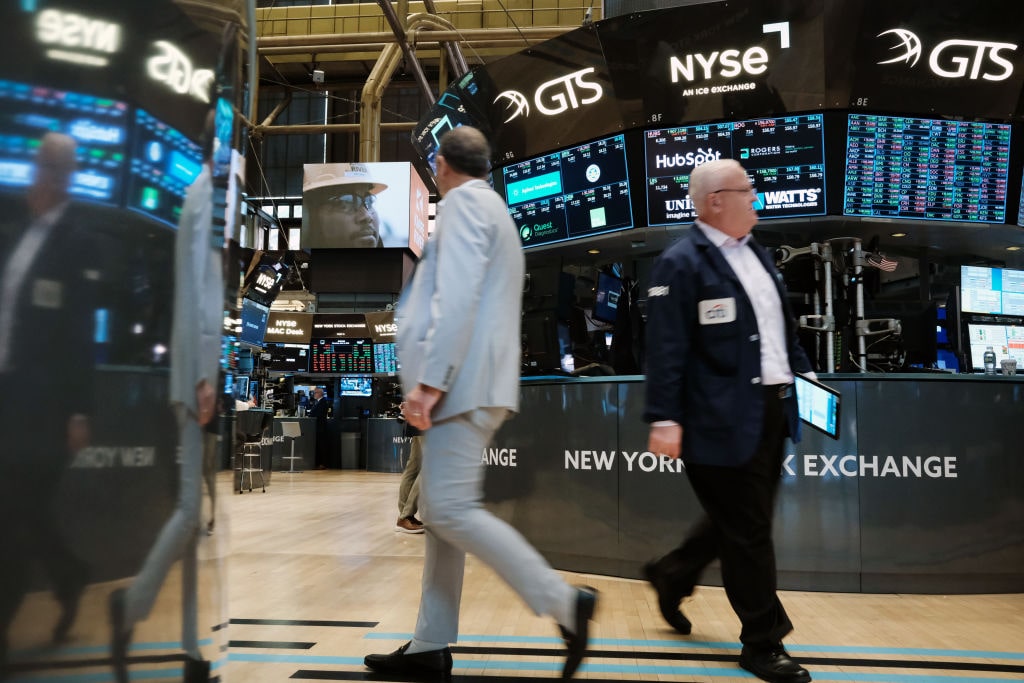Over the past year, Wall Street has contended with a great bombardment of events: rising interest rates, a banking crisis, war in Eastern Europe, rampant inflation, a debt ceiling battle, a technical recession, and much more. And yet, the New York Stock Exchange has seen two of its three leading benchmark indexes enter a new bull market phase. But, as Liberty Nation noted late last year, investors are looking ahead to the return of the easy money era and buying all the “stonks.”
A Bullish Stampede on Wall Street
The bulls are feasting on the bears. Over the last 12 months, the S&P 500 has rallied 20%, and the NASDAQ Composite Index has surged 27%. The Dow Jones Industrial Average is on the cusp of a bullish invasion, climbing 15% in the last year. Of course, the debate among the top analysts of the day is if this upward trend is sustainable heading into the second half of 2023. Well, there are two factors at play.
First, armchair and institutional traders are fighting the Federal Reserve. Despite Fed Chair Jerome Powell planning for two more rate hikes this year and dismissing the possibility of rate cuts anytime soon, a significant portion of the futures market is penciling in a reduction to the fed funds rate by December 2023. A chorus of folks on The Street disagrees with the Federal Open Market Committee’s (FOMC) dot-plot and Survey of Economic Projections and believe sluggish growth will force the Eccles Building to pull the trigger on a rate cut.
Second, nearly all of the S&P’s gains have resulted from only seven companies (Apple, Microsoft, NVIDIA, Alphabet, Amazon, Meta, and Tesla). You might as well call it the S&P 493. In addition, the primary contributor to the tech rally has been artificial intelligence. AI is the key buzzword on Wall Street these days, much like how the dot-com bubble was all the rage in 1998. Have investors already priced in AI, or will traders try to cash in even more on this innovation?
Paul Krugman: LOL
For years, Keynesian economist Paul Krugman has been a meme for anyone who does not subscribe to his philosophy that the government is good. Krugman has routinely stated that inflation is non-existent, even leading up to the latest inflationary cycle, despite the consumer price index (CPI) soaring over the last 50 years. The joke was: There is no inflation if you do not eat, drive a car, or live under a roof. Well, he recently stated this in earnest on Twitter. “Getting hard to deny significant disinflation happening, despite unemployment close to historic low,” he wrote and then posted a CPI chart excluding – get this – food, energy, shelter, and used cars. This is comparable to former National Economic Council director Brian Deese’s statement in 2021: If you do not count things adding to inflation, there is no inflation.
Recession in New Zealand
 According to the latest government data, New Zealand is the latest advanced economy to slip into a technical recession. In the first quarter, the GDP growth rate was -0.1%. In the fourth quarter, the national economy contracted -0.7%. So, contrary to what US officials said in 2022, this meets the technical definition of a recession. The country witnessed notable business services, transportation and warehousing, and trade declines. But the data also reported real estate, information media, and telecommunications gains.
According to the latest government data, New Zealand is the latest advanced economy to slip into a technical recession. In the first quarter, the GDP growth rate was -0.1%. In the fourth quarter, the national economy contracted -0.7%. So, contrary to what US officials said in 2022, this meets the technical definition of a recession. The country witnessed notable business services, transportation and warehousing, and trade declines. But the data also reported real estate, information media, and telecommunications gains.
The Reserve Bank of New Zealand’s (RBNZ) tightening campaign has also started to weigh on the economic landscape. In May, the RBNZ lifted its benchmark interest rates by 25 basis points to a 14-year high of 5.5%. Monetary policymakers are still trying to combat price pressures, with the first-quarter inflation slowing to just 6.7% year-over-year, down from 7.2% in the fourth quarter.
The International Monetary Fund might have best described the state of the New Zealand economy:
“New Zealand’s economy is in the midst of a necessary, policy-induced slowdown following the strong post-pandemic recovery. As non-tradable inflation persists, there is little scope to lower the OCR (official cash rate) for a prolonged period. A reignition of demand, including due to insufficient fiscal consolidation, and a stalling of inflation above target would call for further tightening of monetary policy.”
New Zealand joins Germany and the eurozone as another advanced economy to enter a recession.




